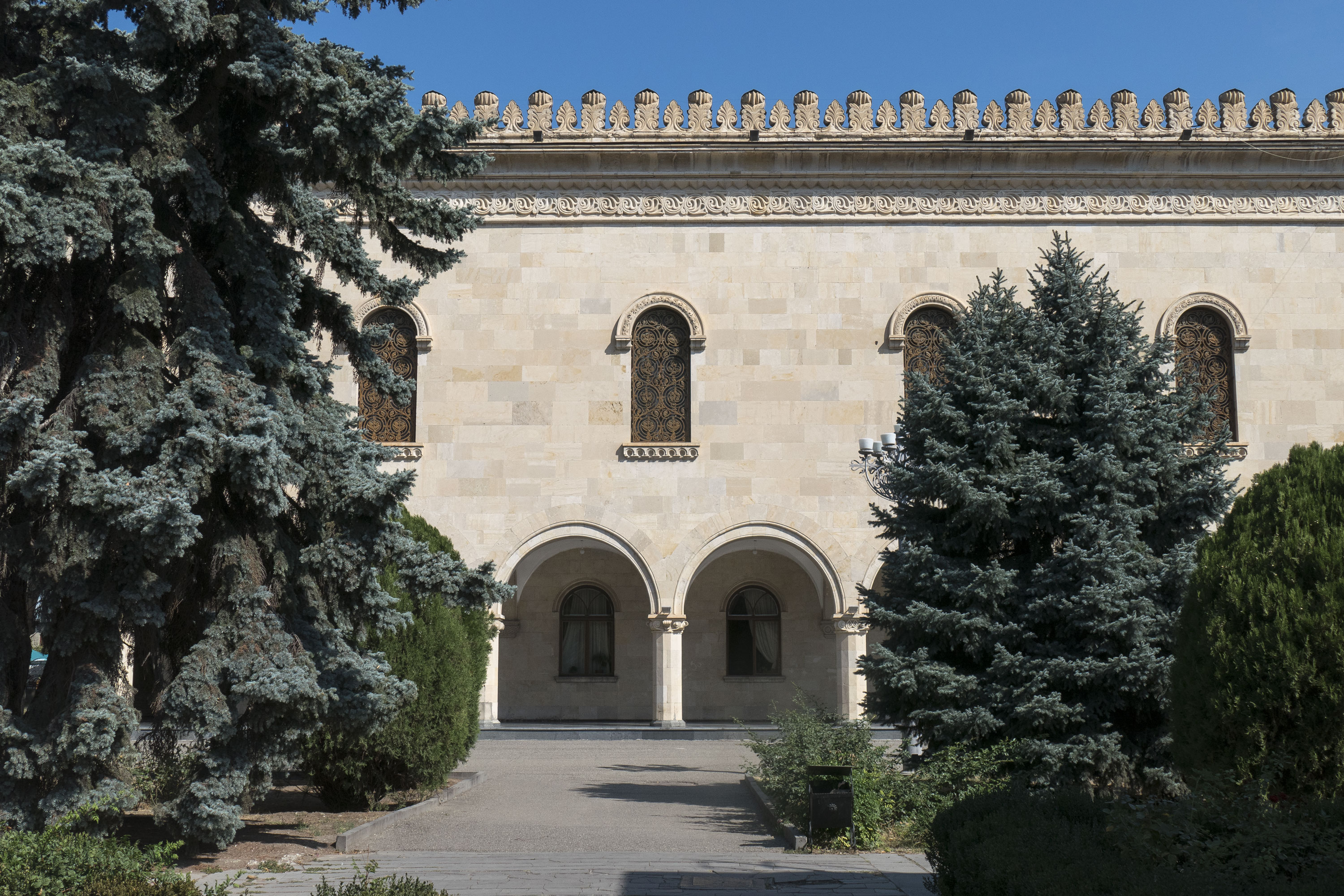Gori
Gori is a small Georgian town located 75 kilometers away from Tbilisi. It has a population of only 45 thousand people, but this town is famous throughout the former USSR.
Here, in Gori, was born one of the greatest figures of the 20th century who left a mark in the history of Russia and all of humanity. I couldn’t help but visit Gori and get acquainted with the homeland of this outstanding Soviet statesman.
Now, as I write this story, through an archival black-and-white photograph, as if through time, this person looks majestically at me. In his image, a smoking pipe is invariably present, and his gaze is wise and fair. When I look at this legendary figure, I am overwhelmed with emotions. How much has been experienced? How wonderful that fate gave us this genius, this outstanding leader. No one knows in what direction history would have gone if he had not been born.
A lot has been said about this person. His father was a simple military personnel, while his mother came from an aristocratic family. Interestingly, he himself was not always the person he became in history. For example, while studying in his fourth year, he completely failed an exam on the political economy of socialism. The teacher wrote a devastating review: “failed to understand the ambivalent nature of peasant farming.”
But failures did not break his strong and persistent character. Under the guidance of a well-known historian, he still defended his thesis on “The Problem of Historical and Logical in Marx’s ’Capital'” and afterwards worked for a long time at the journal “Problems of Peace and Socialism”, before defending his doctoral dissertation and writing several works that made him world-famous.
As you may have already guessed, we are talking about the great Soviet philosopher Merab Konstantinovich Mamardashvili.
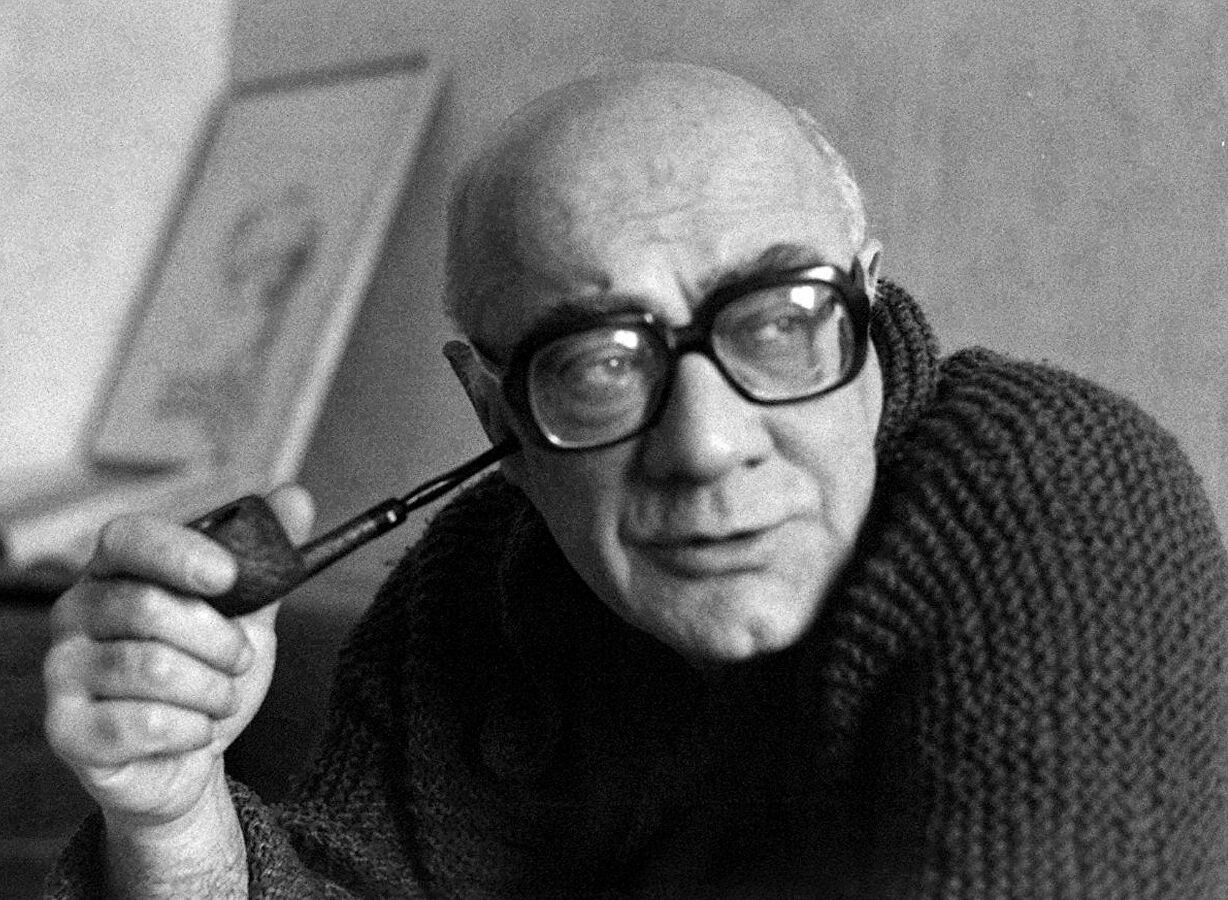
The town of Gori is as monstrously ugly as Tbilisi is beautiful. The only somewhat decent-looking building is the city hall.
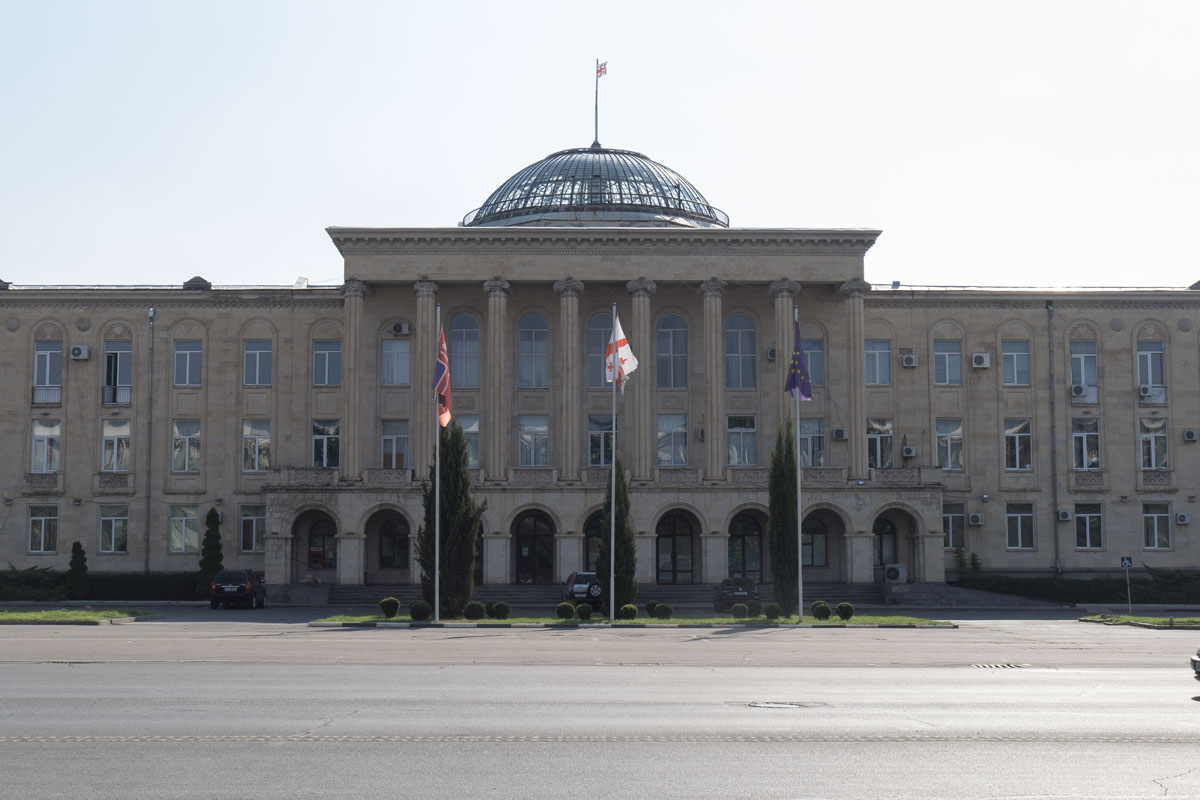
The rest of the city is just a total mess.
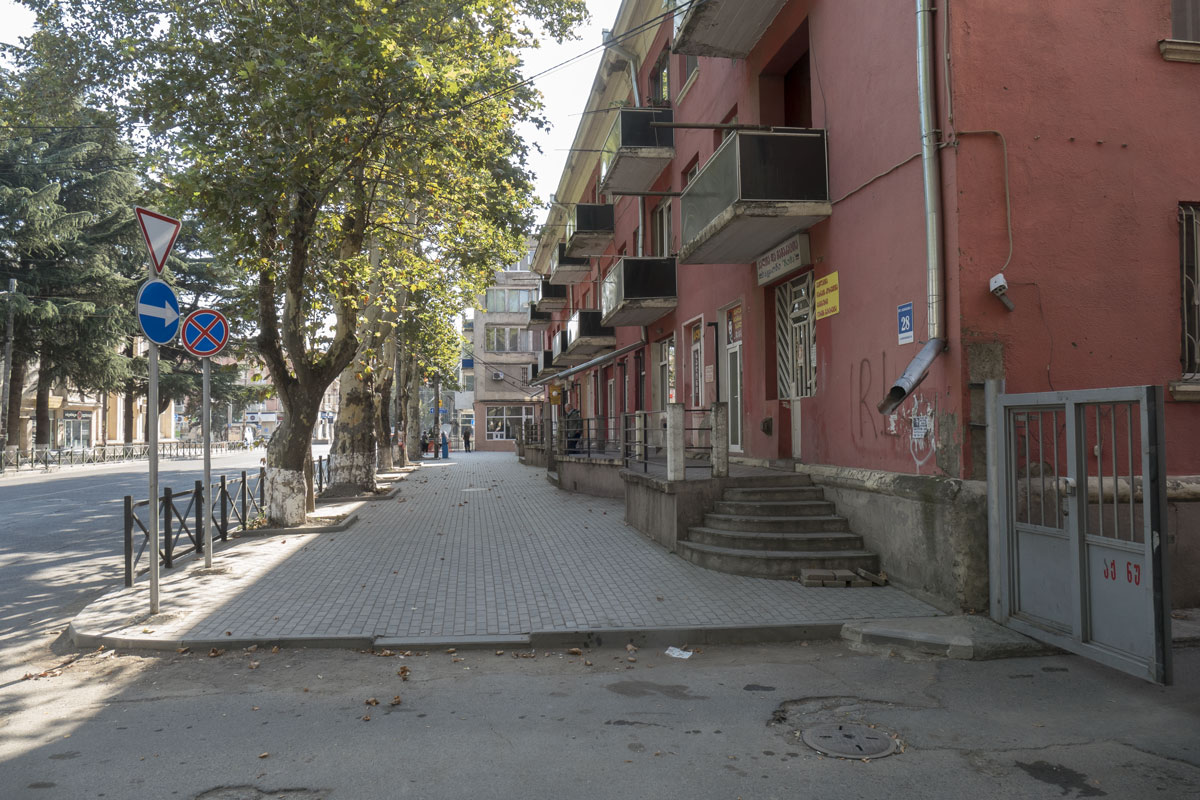
They could at least cover the rainwater drain grates, it looks like India.
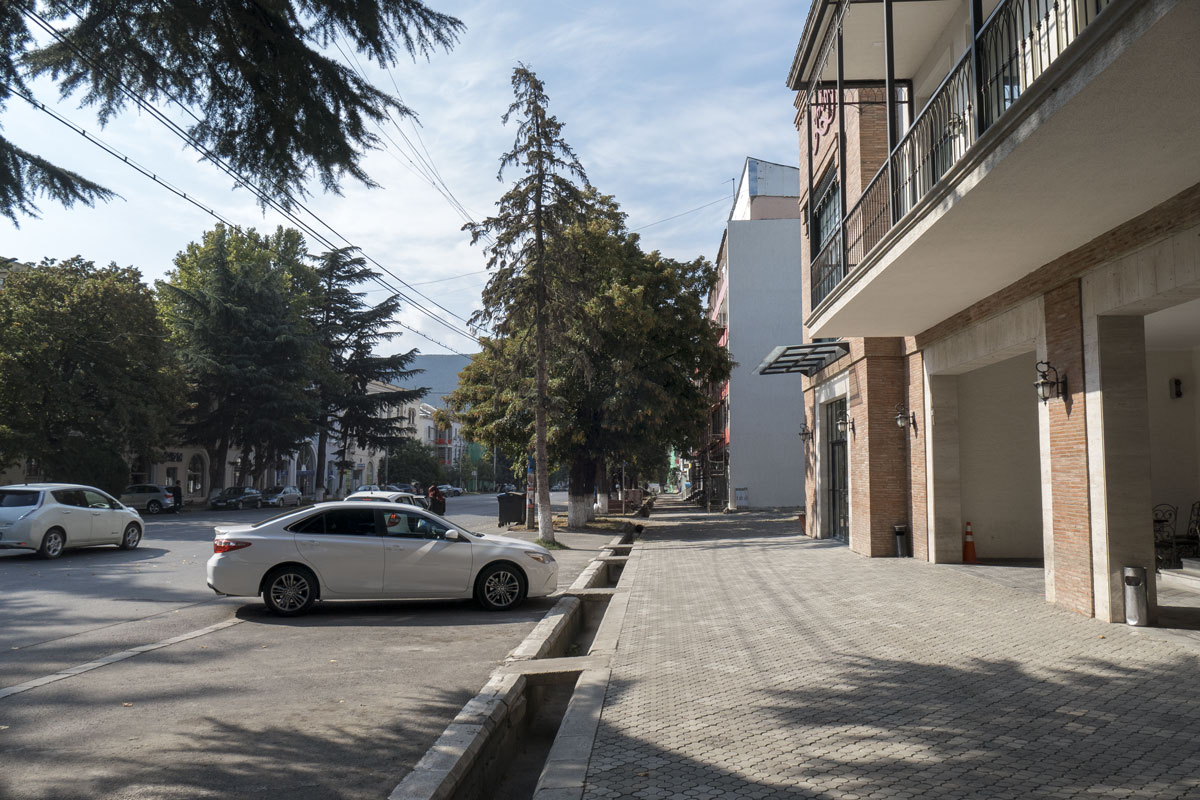
They didn’t even have enough intelligence to lay normal pipes in the sewage system, instead they stick out two meters high and hang over the entire street. Where have you seen such a thing?
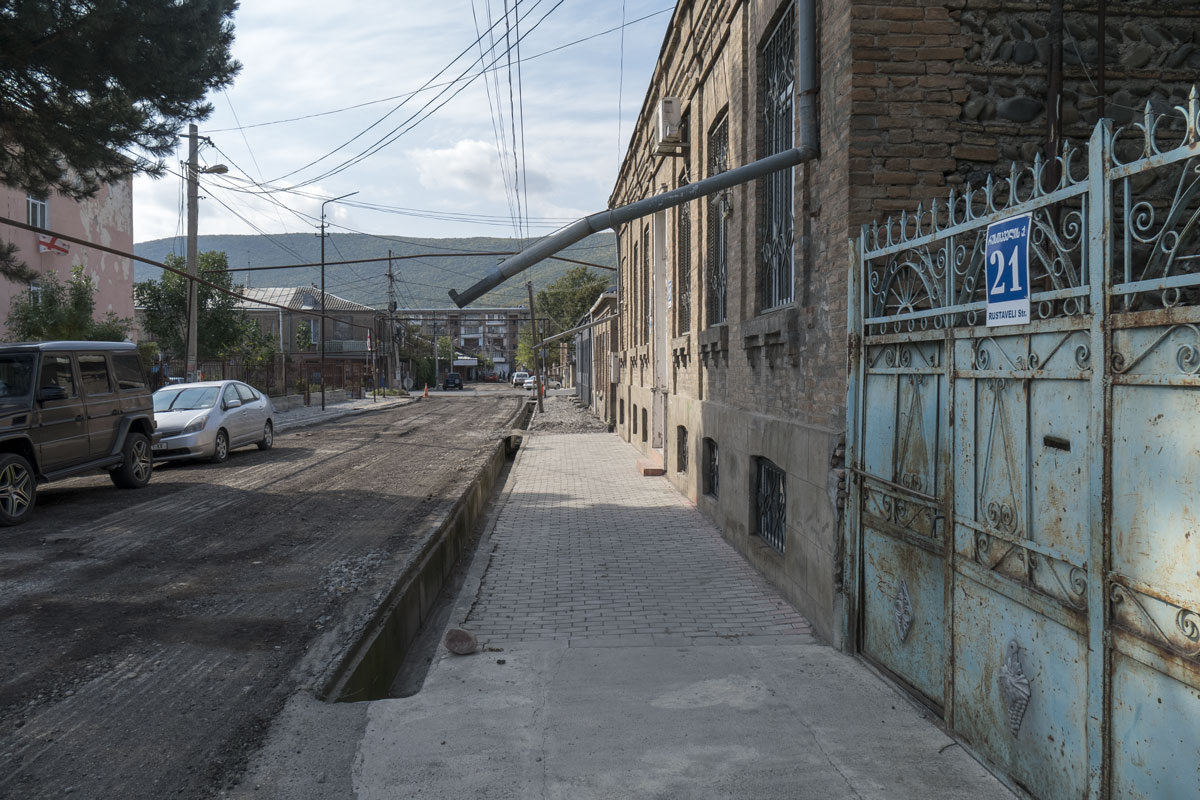
Caucasian poverty. A sacred cause.
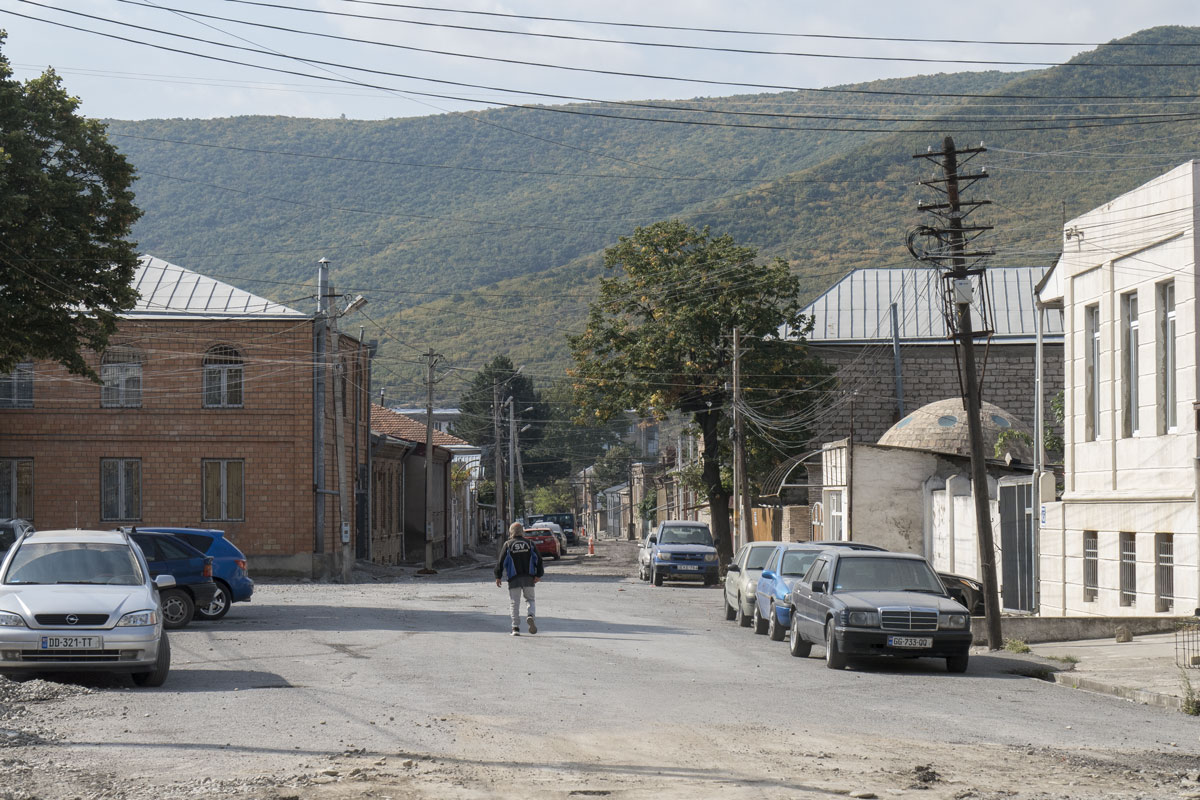
The houses are falling apart.
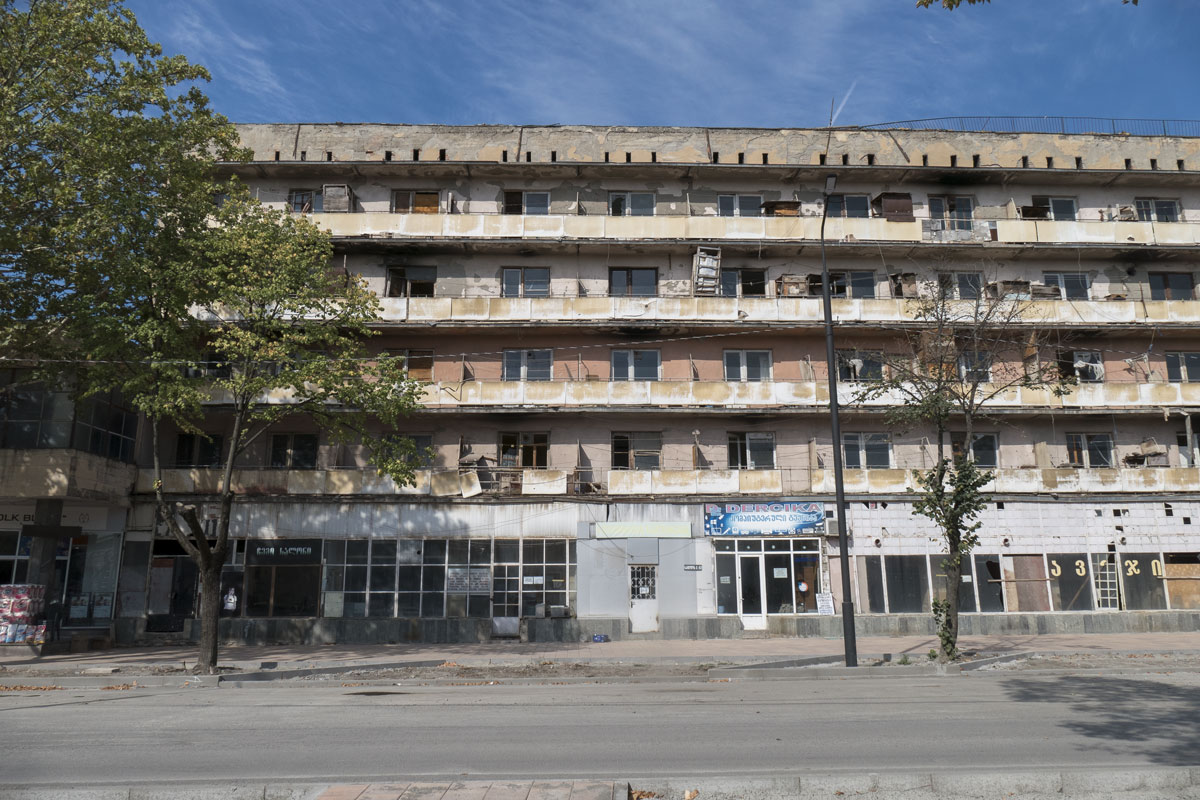
It feels like a war was here just last week.
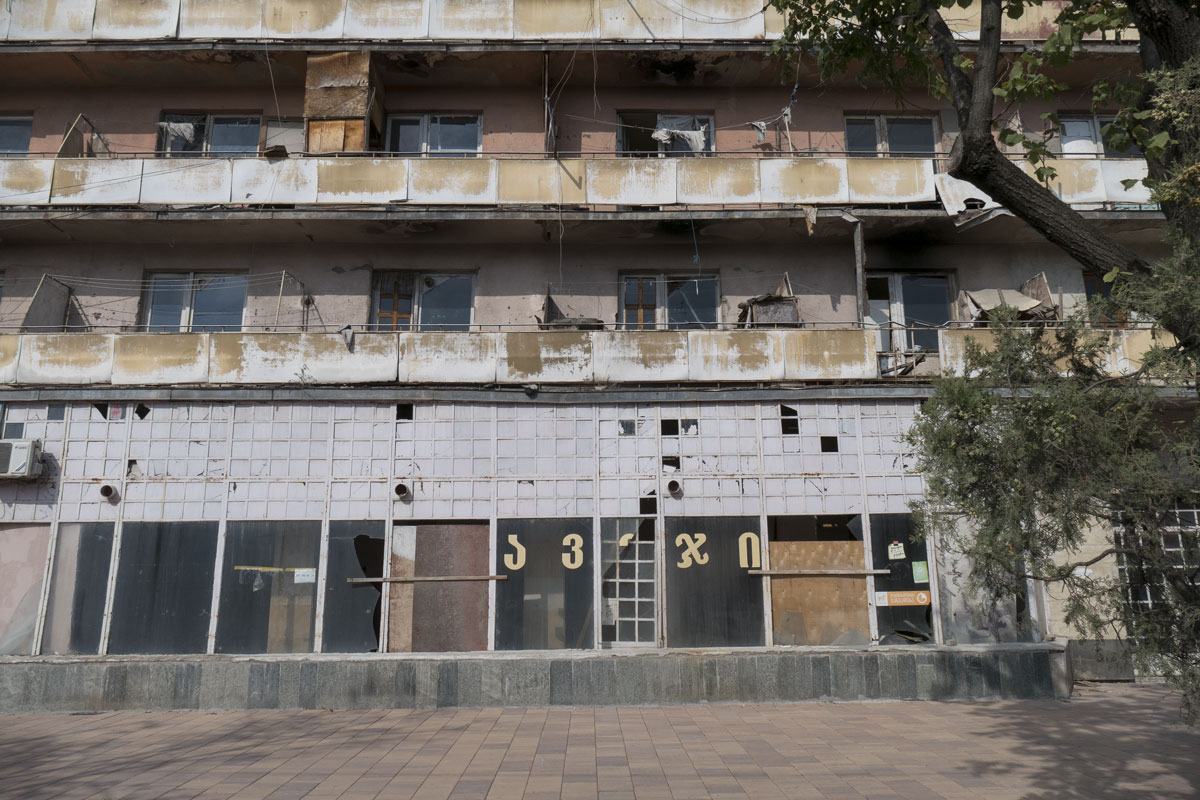
The Soviet signs create a feeling not of warmth, but of a zombie apocalypse.
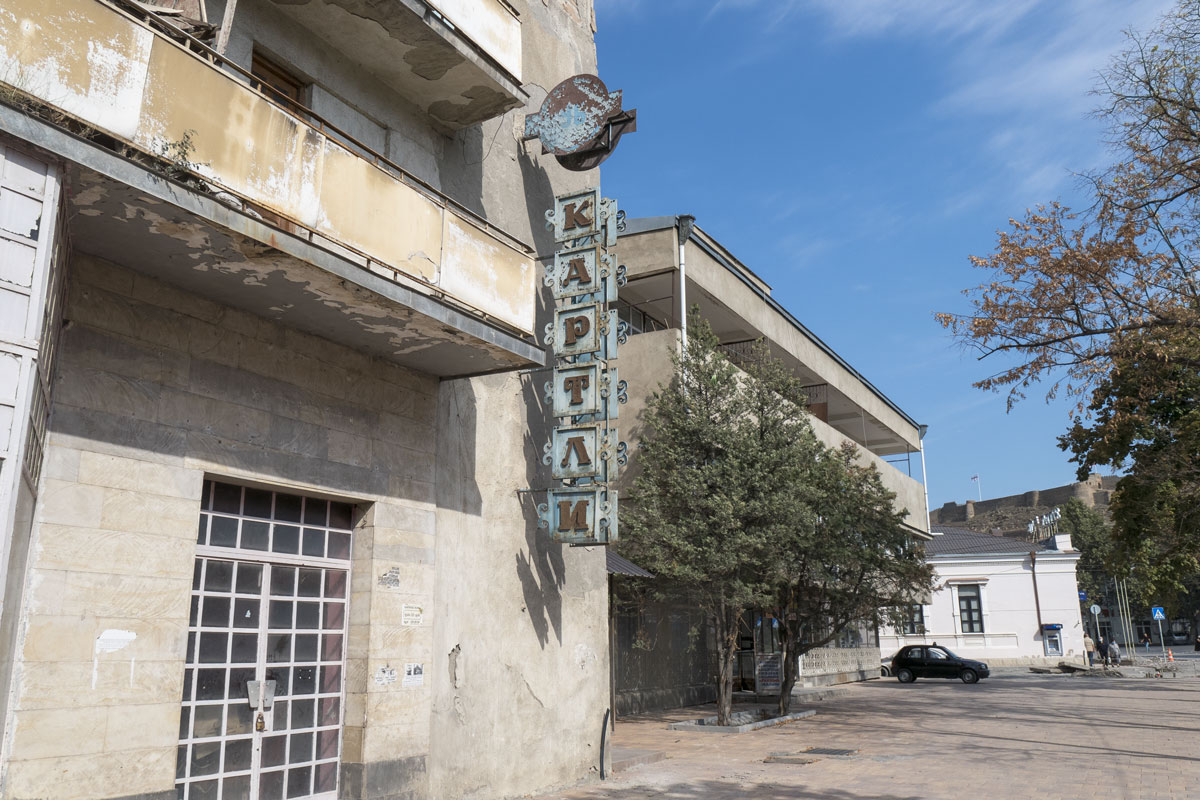
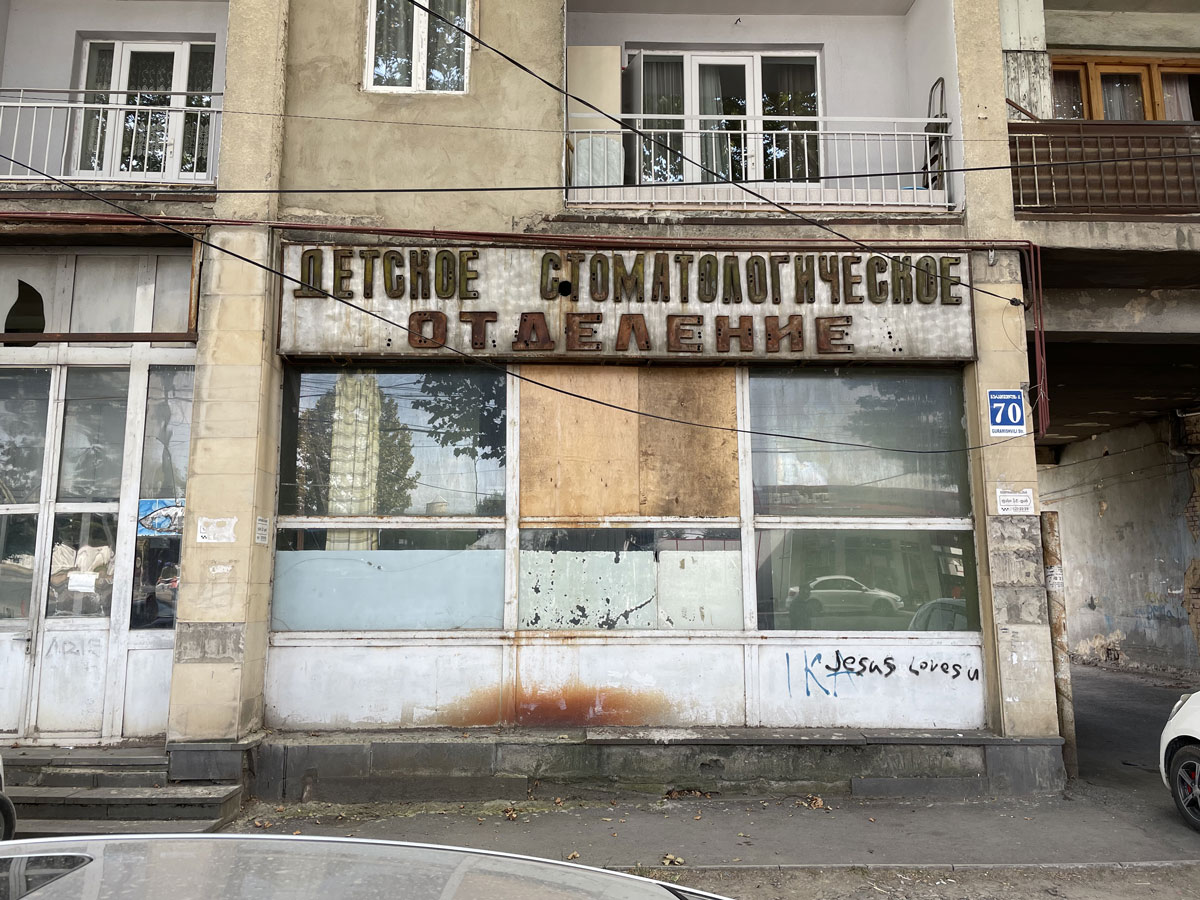
There is simply nothing in Gori. Nothing. Not a single decent café, not a single good store. Poverty here borders on destitution, everything that can be destroyed or broken is destroyed or broken. Apparently, there is no work either, so there is no money to buy anything in the stores. Locals buy their goods at the market, which resembles something like Afghanistan or Africa.
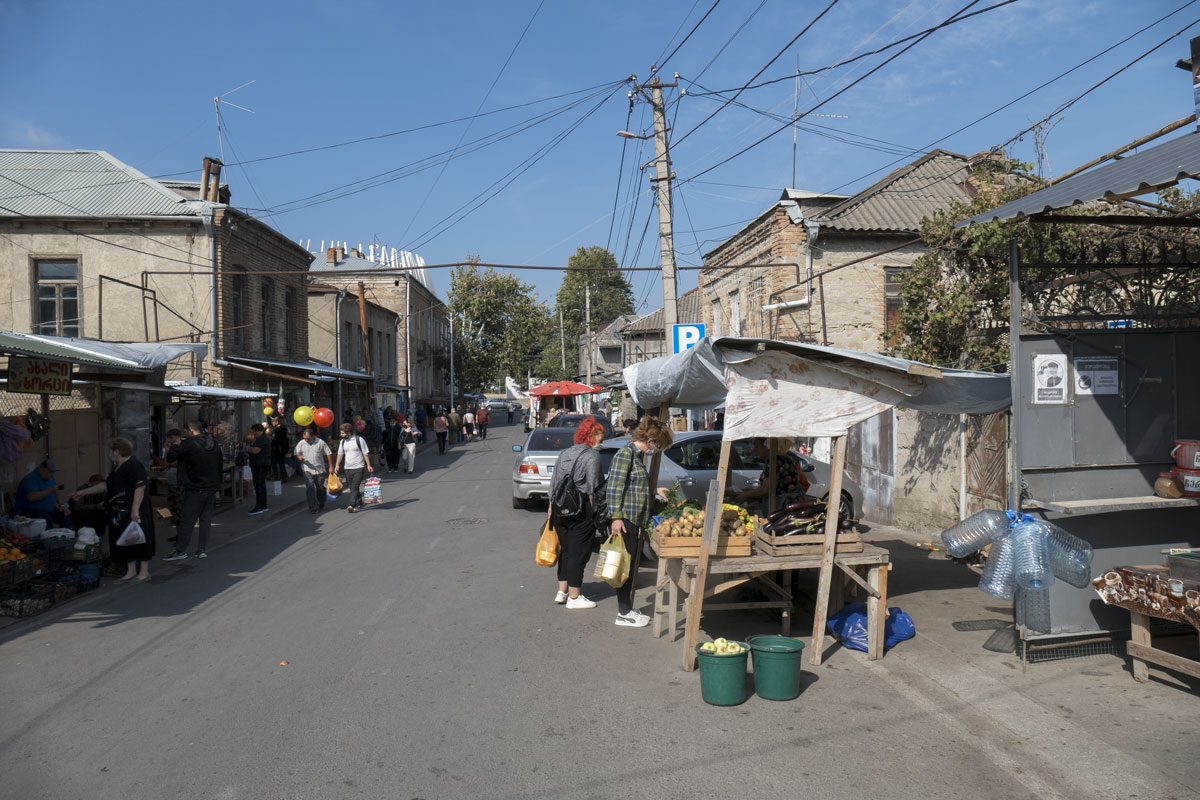
Next to the market is a bus station, from which hardly any buses run. Yandex Taxi, which works perfectly in Tbilisi, simply does not exist in Gori.
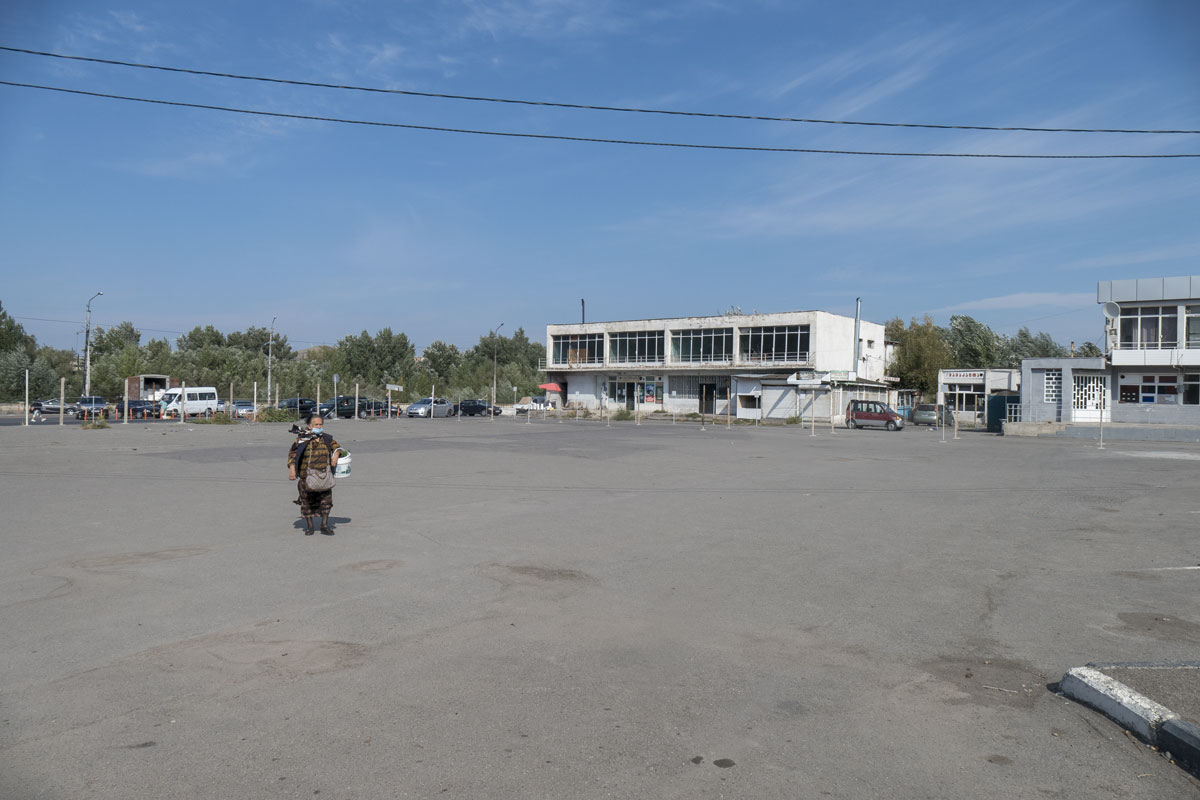
The bus station building is half-destroyed and used by locals as a toilet. The stench of feces can be smelled within a radius of one hundred meters.
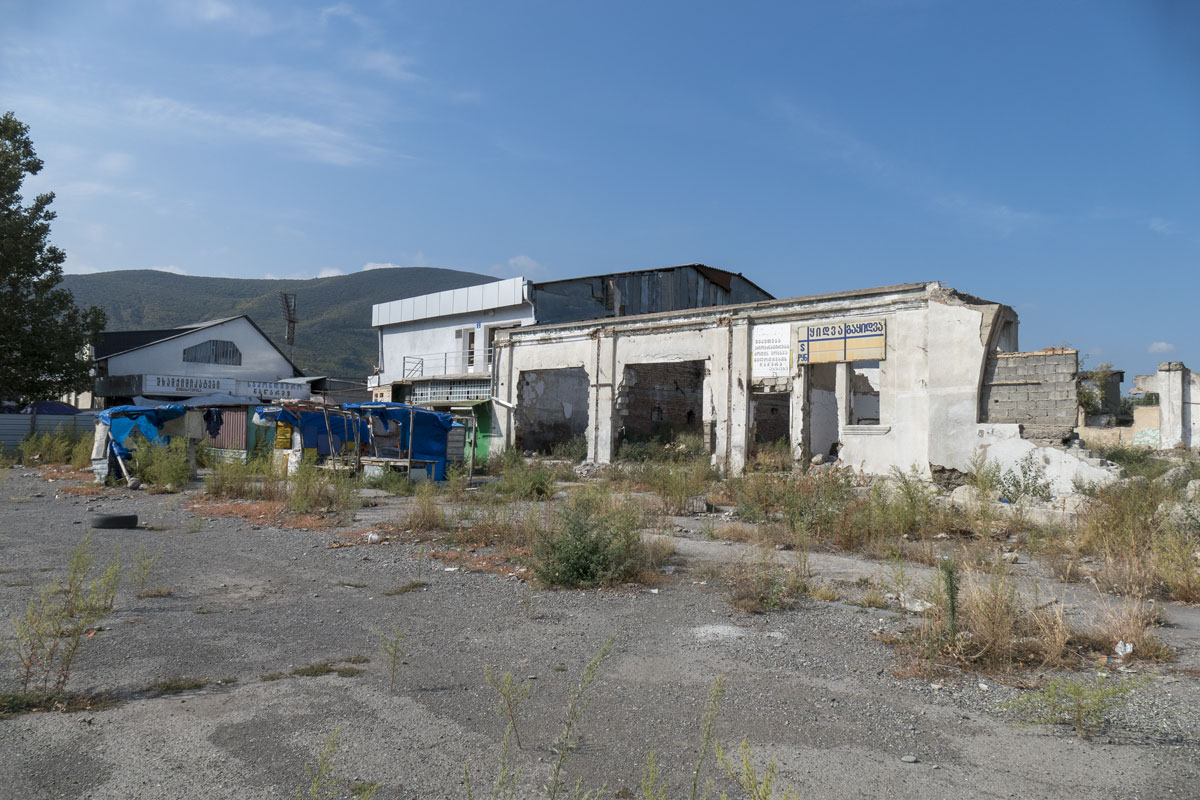
The underground passage near the bus station is a pearl of Gori. I have never seen anything more disgusting in my life. Clothing and other junk sellers are located in the passage. Some tables are unoccupied. This is not a passage, but a morgue.
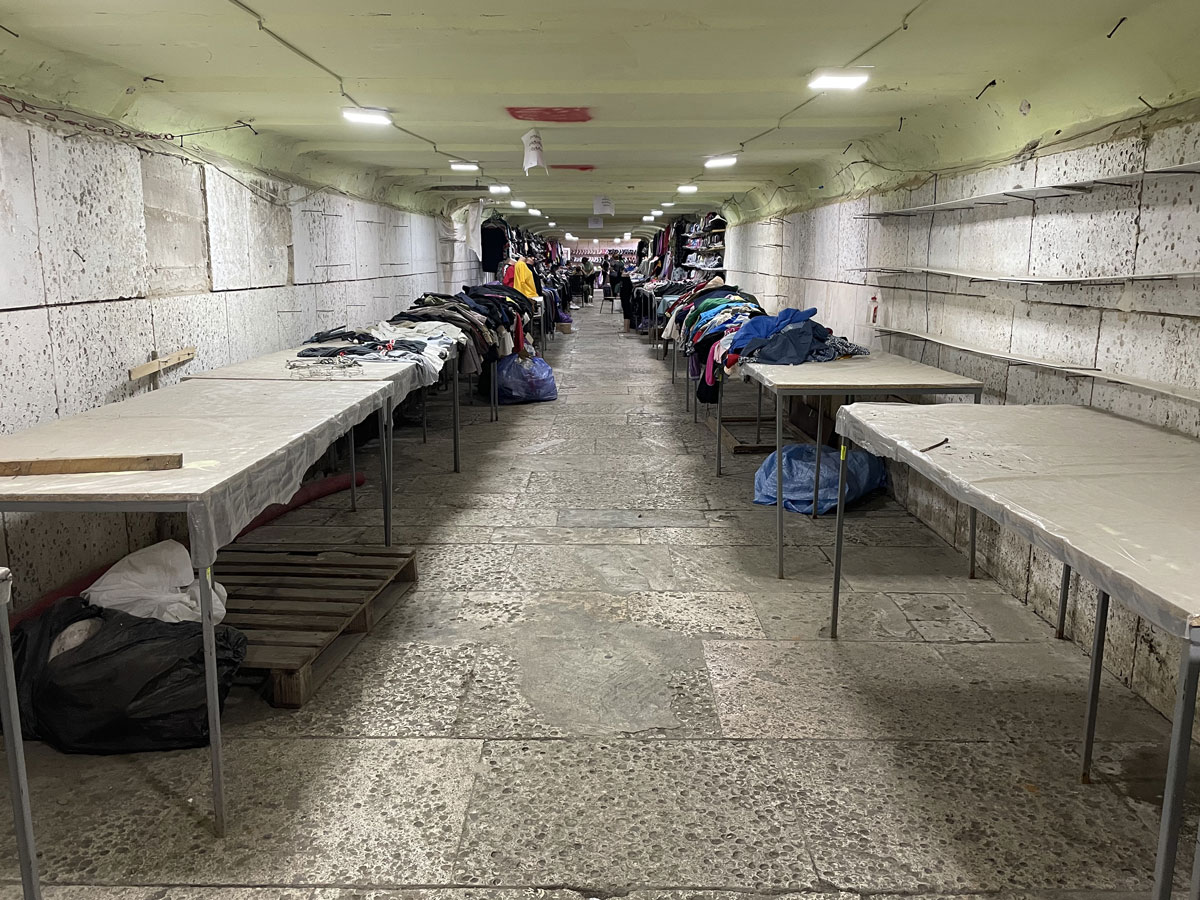
The medieval fortress, built in the 13th century, creates a special atmosphere for the city. Simpler fortifications on this hill existed even earlier: possibly as early as the 5th century BC. The fortress was used to protect trade routes that ran from Europe to Asia. The modern appearance of the fortress dates back to the turn of the 17th and 18th centuries.
The fortress is visible immediately upon arrival in Gori. There it is, looming on the horizon behind the city.
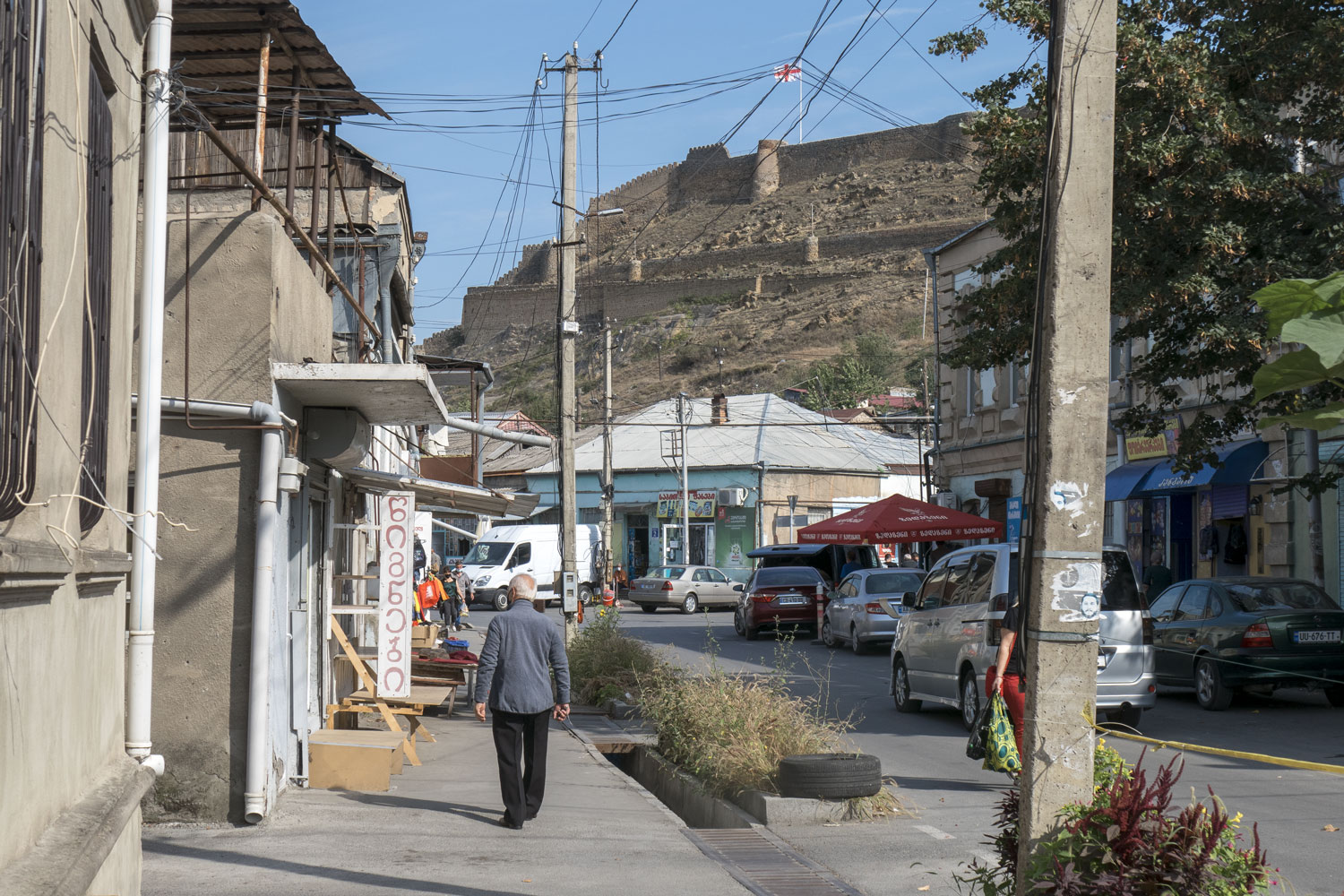
The view is certainly remarkable. Purest Afghanistan. A filthy market against the backdrop of exceptional antiquity.
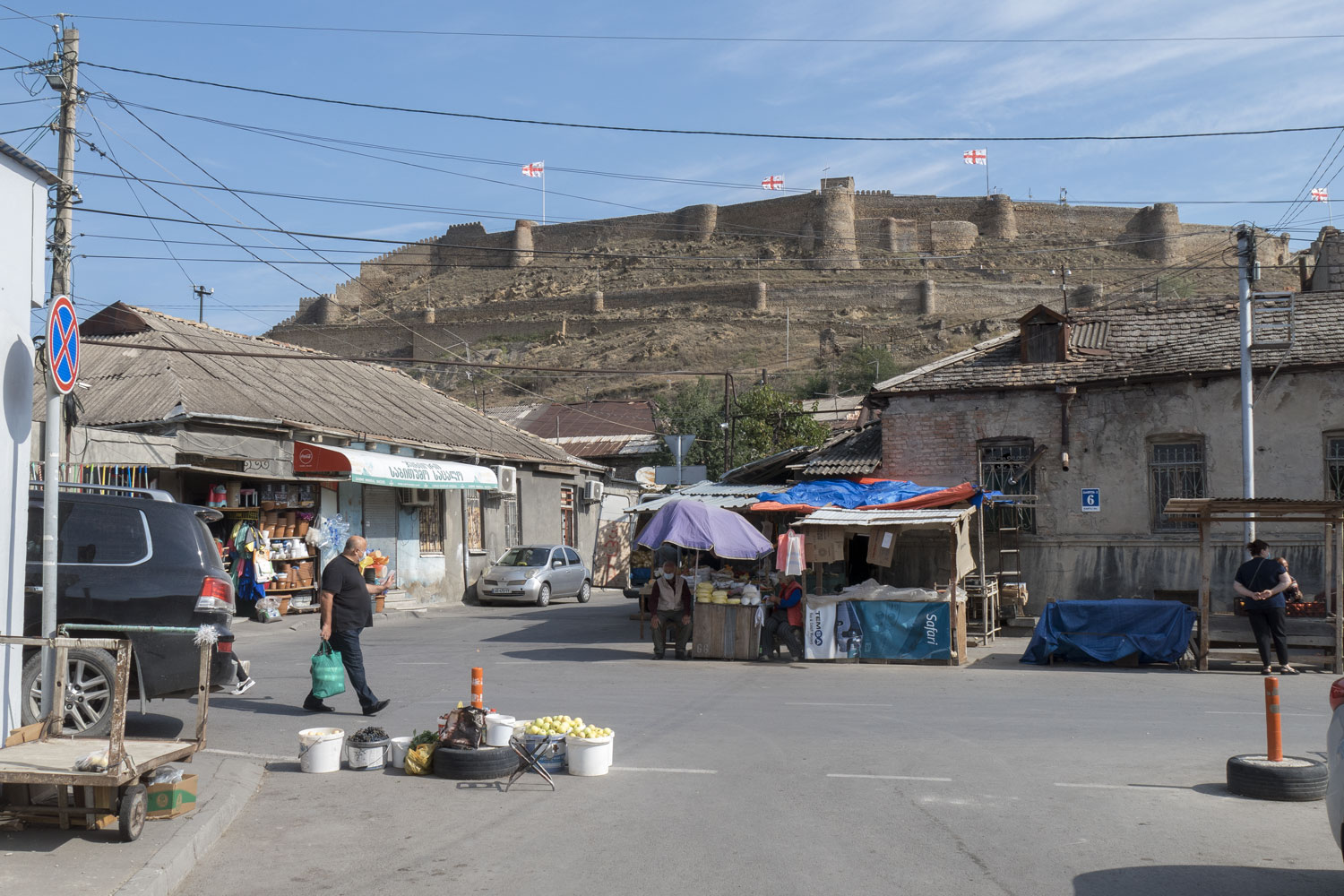
Hmm, beauty.
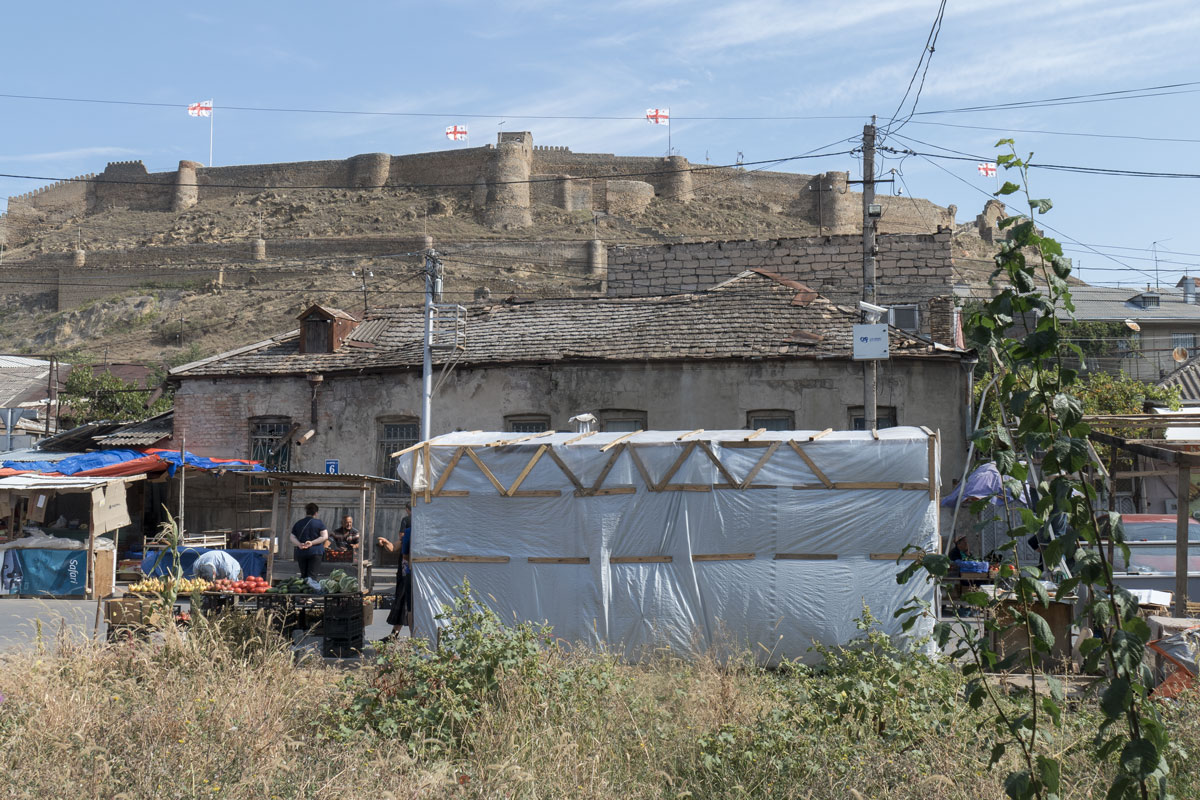
A garbage dump.
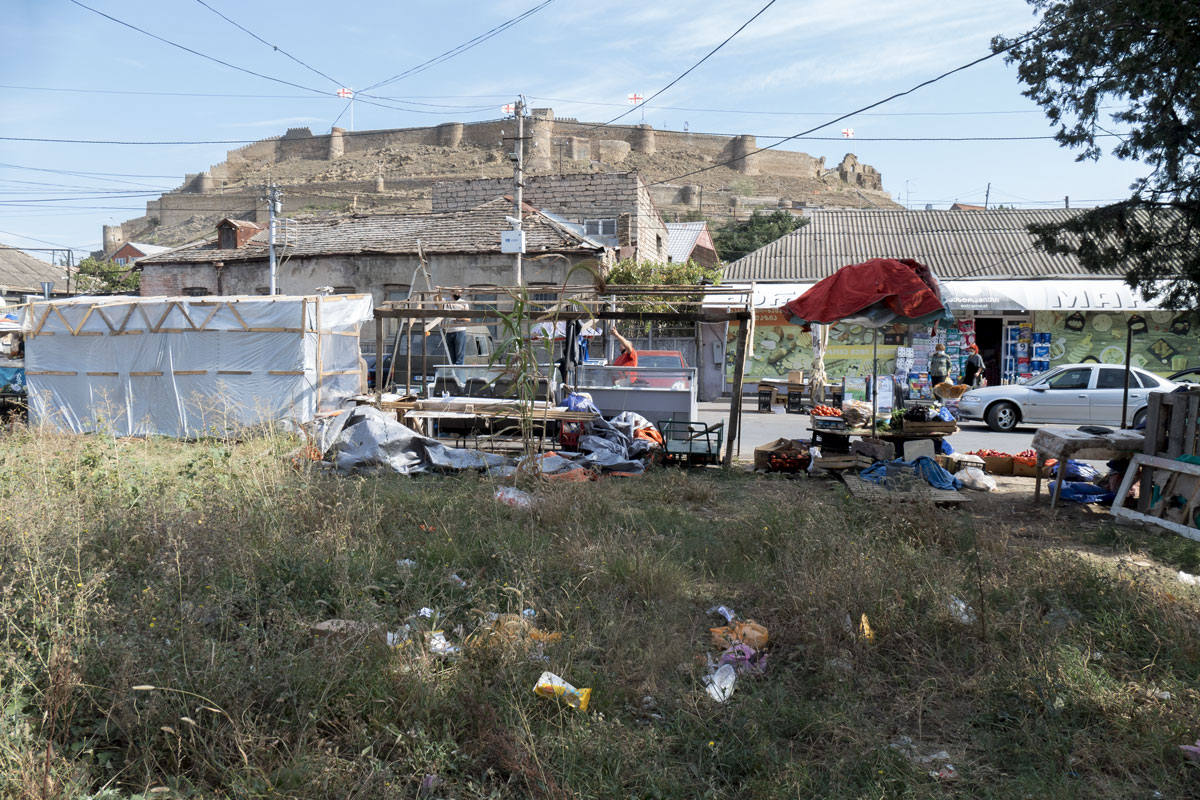
The passage to the fortress turned out to be closed. They are repairing something there, and with no tourists during the pandemic, it remains closed.
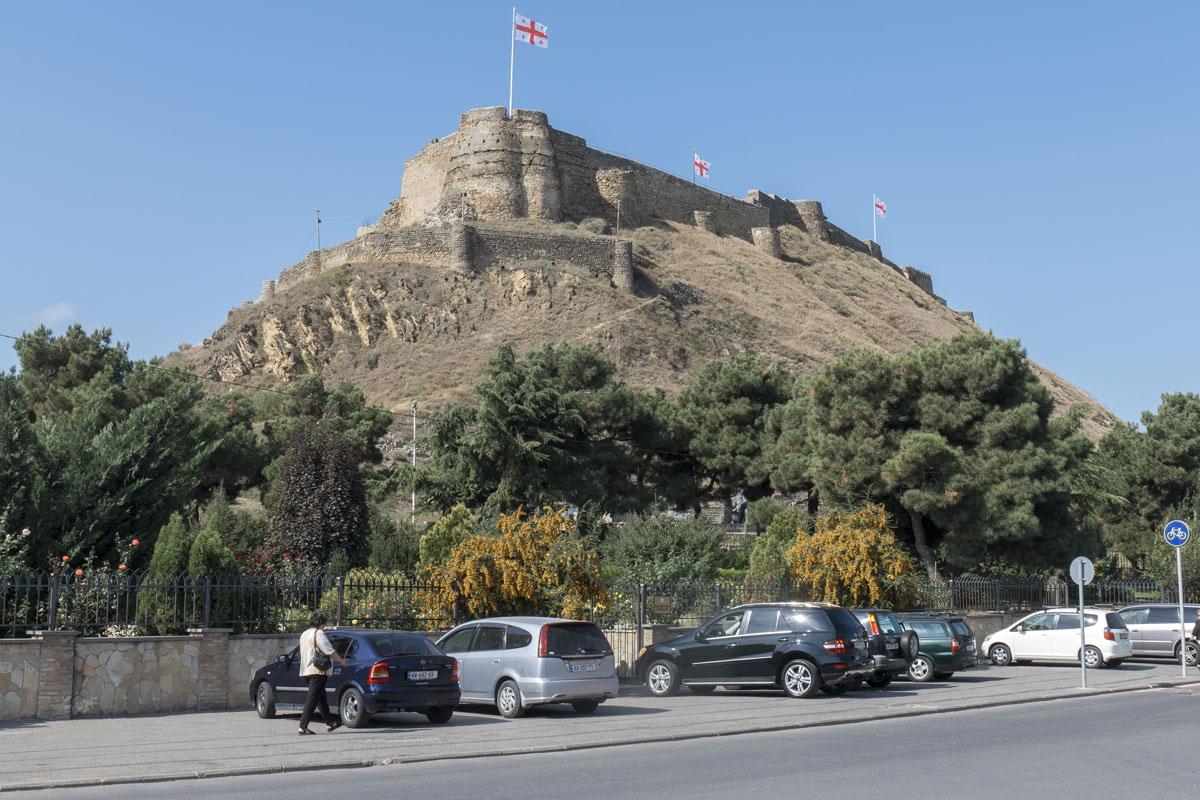
To be fair, it should be said that some work is being done in the city. One street leading to the fortress has been turned into a tourist attraction.
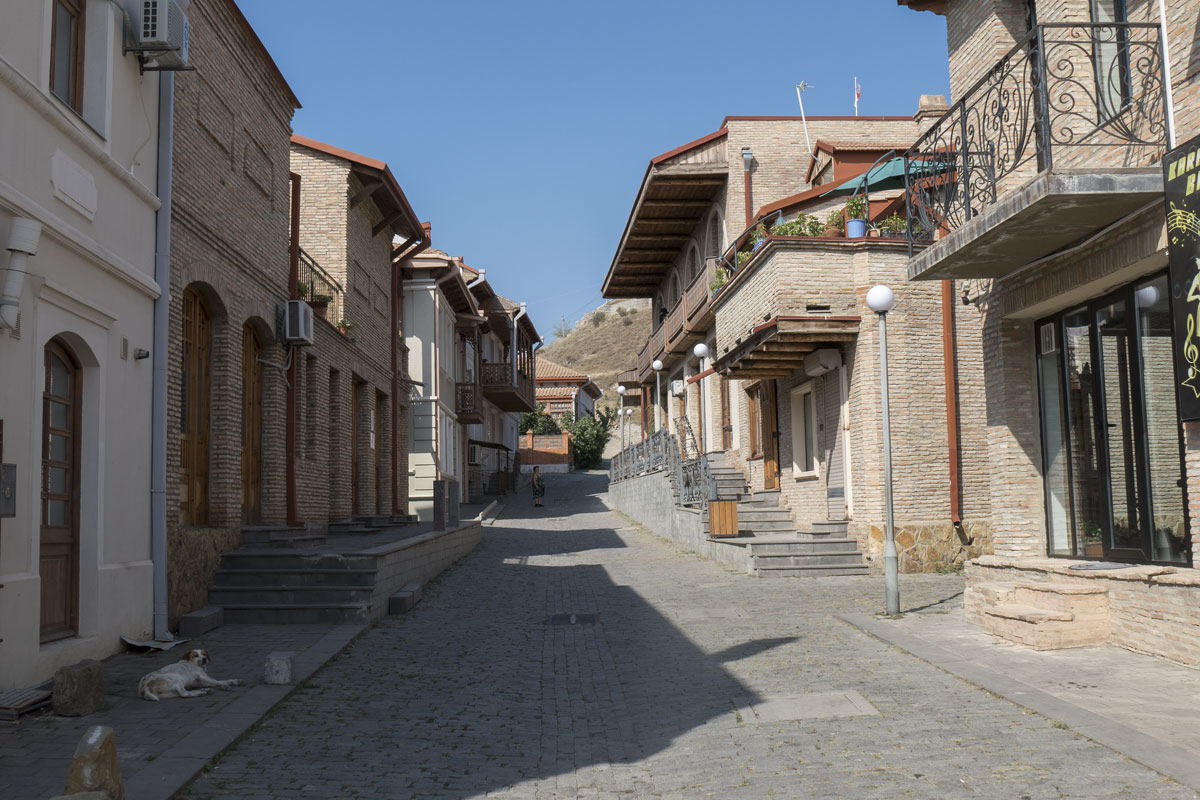
Benches, trash cans, and street lamps have been installed in the park, albeit not of the highest quality.
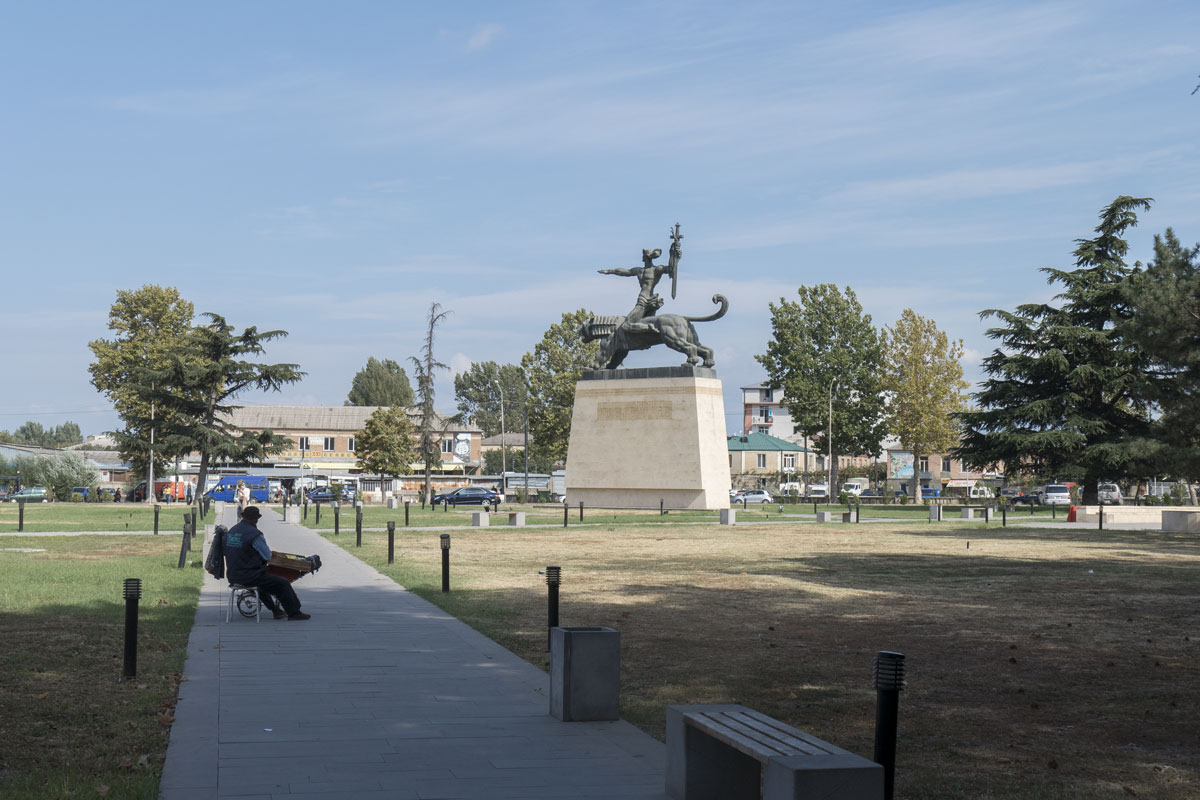
Posters demonizing Saakashvili.
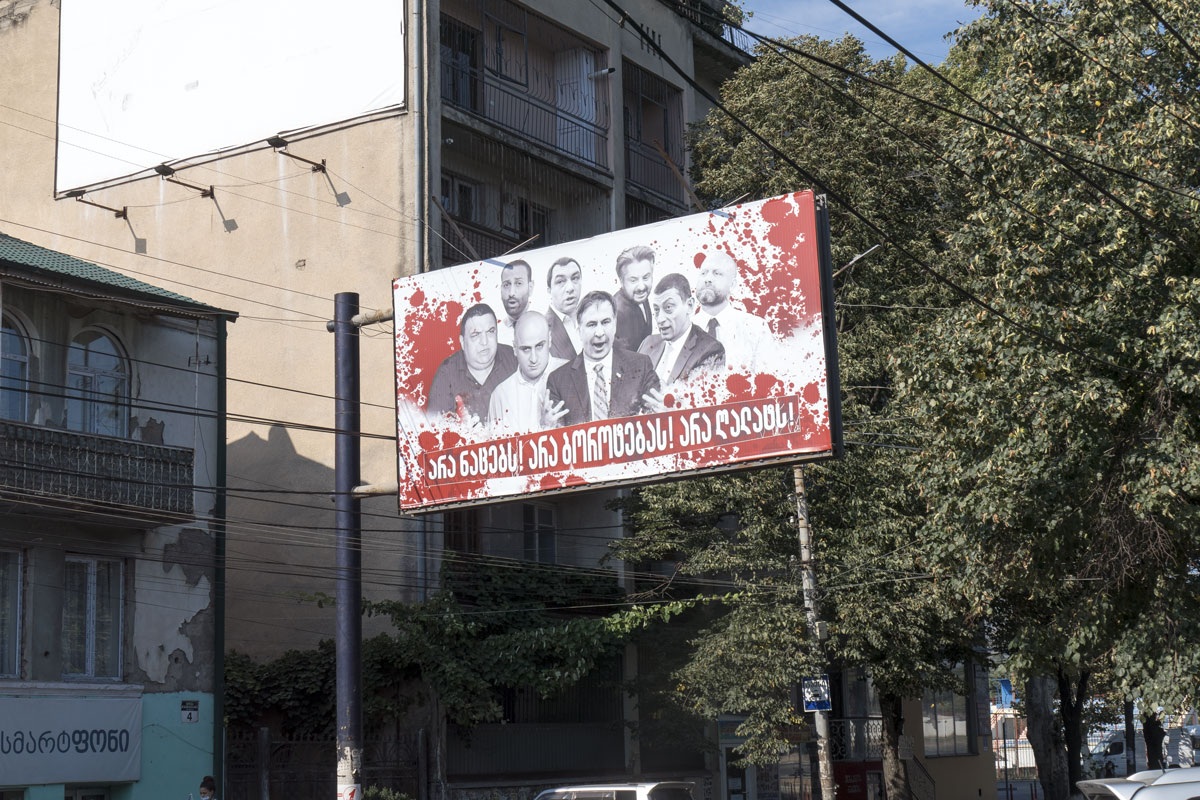
I don’t think this will help. Tbilisi is an absolute Georgian asshole.
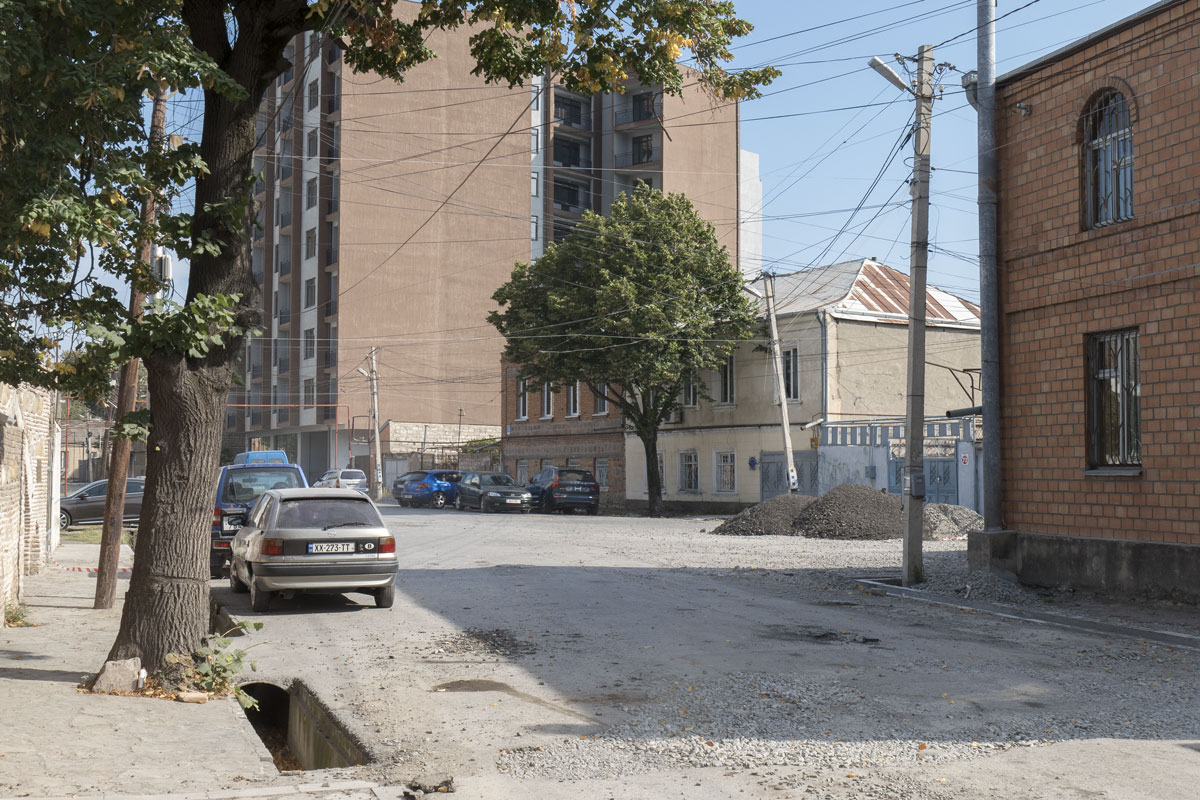
It’s a pity, because in addition to Mamardashvili, another great person who entered the history of the USSR was born in Gori. The composer and conductor Vano Muradeli.
